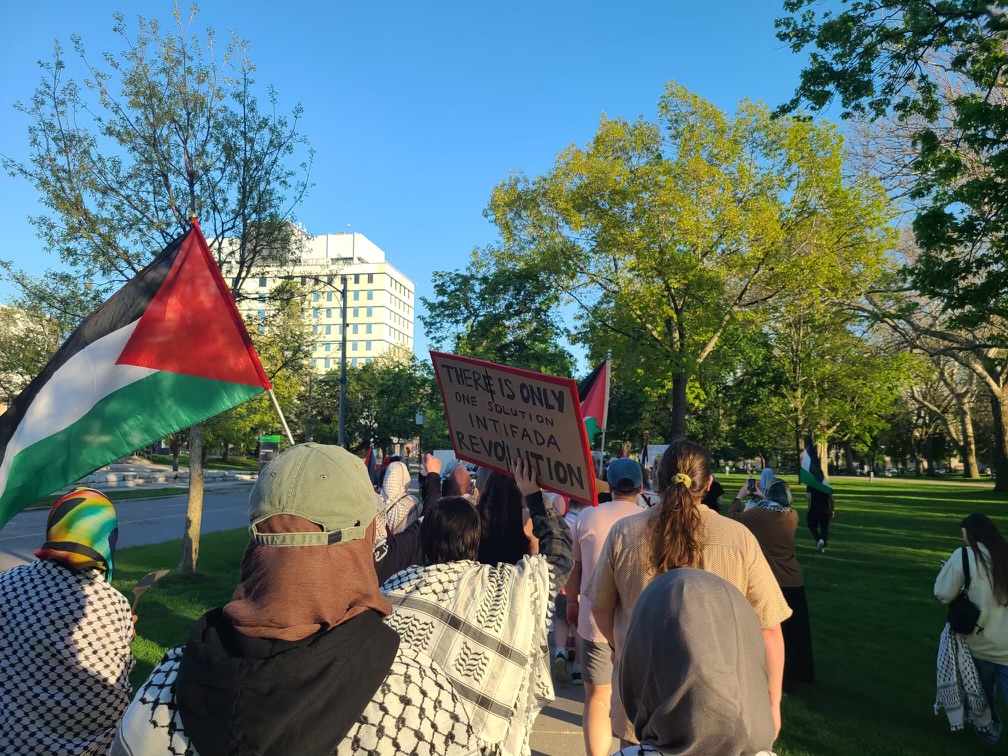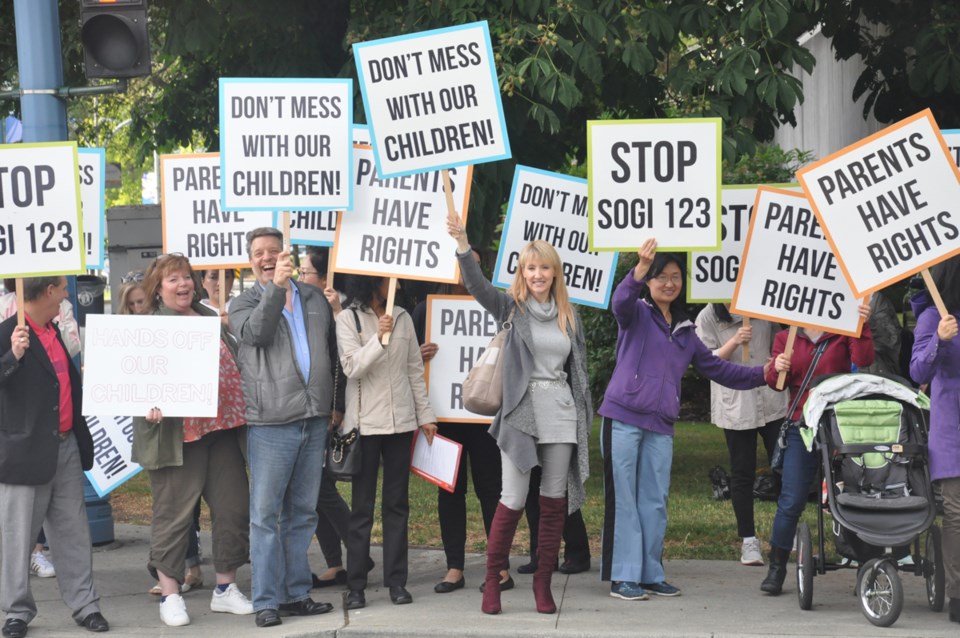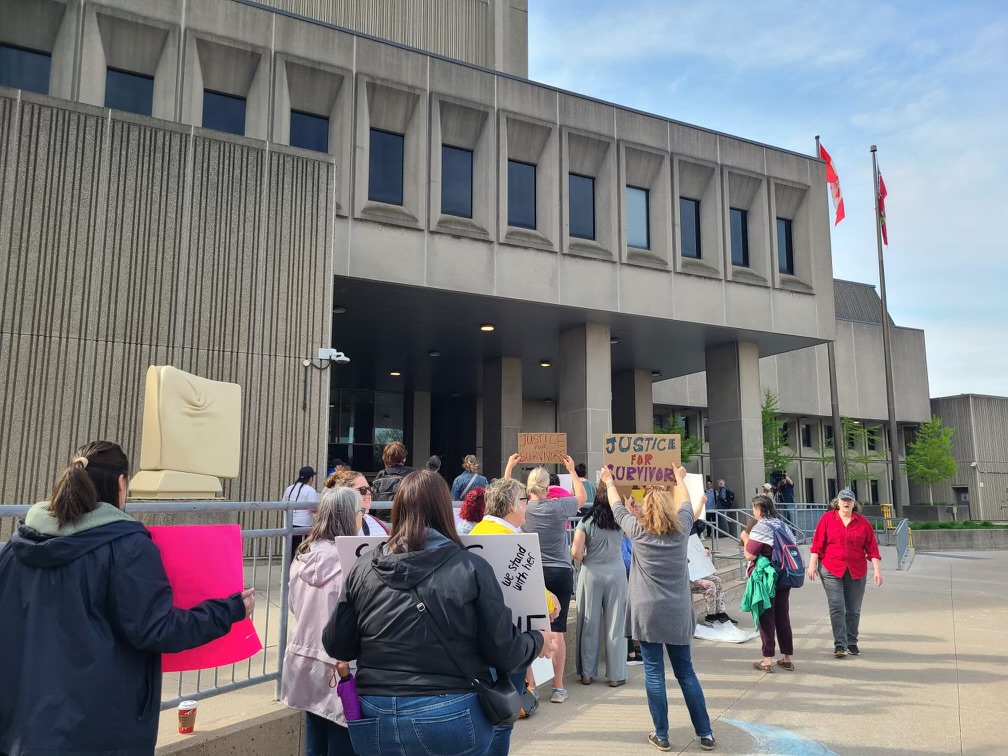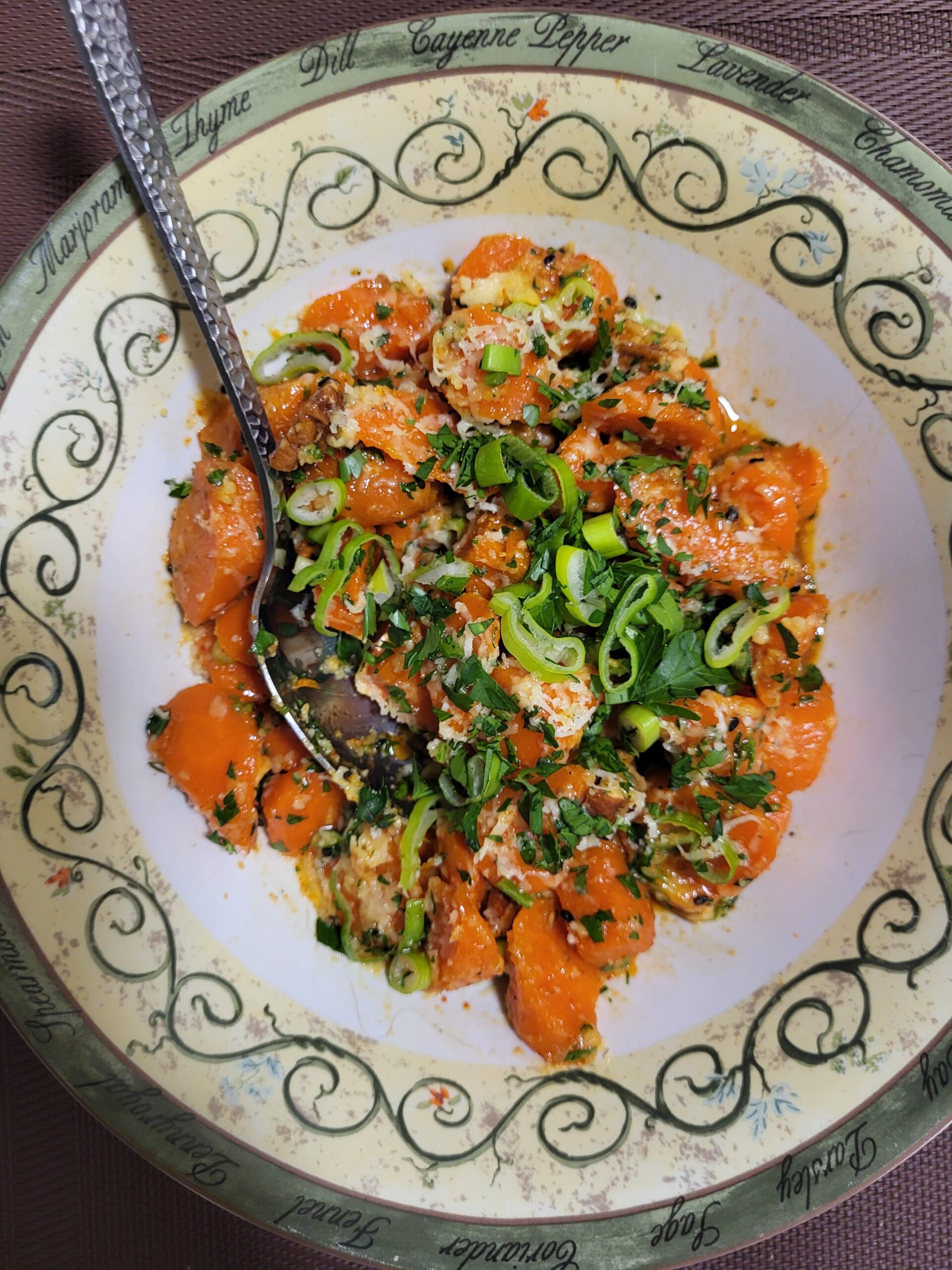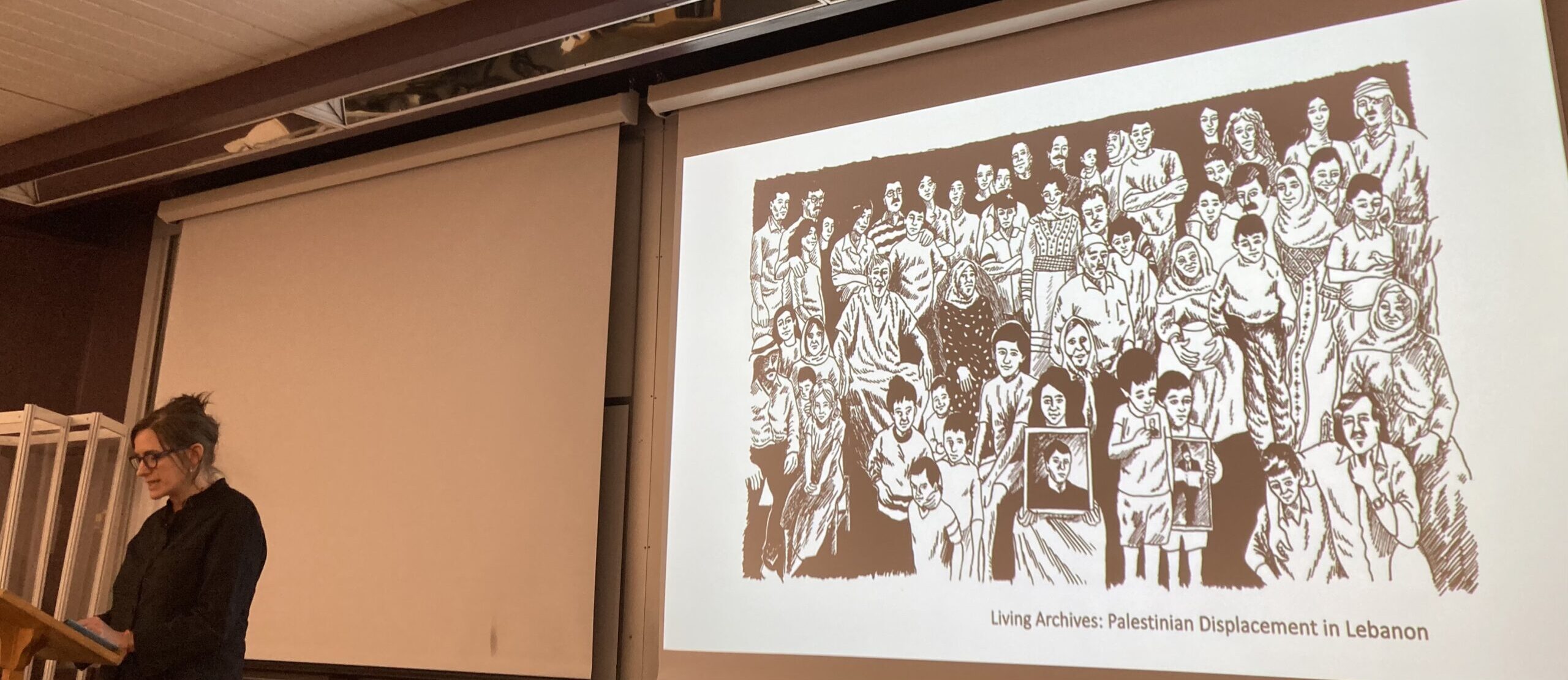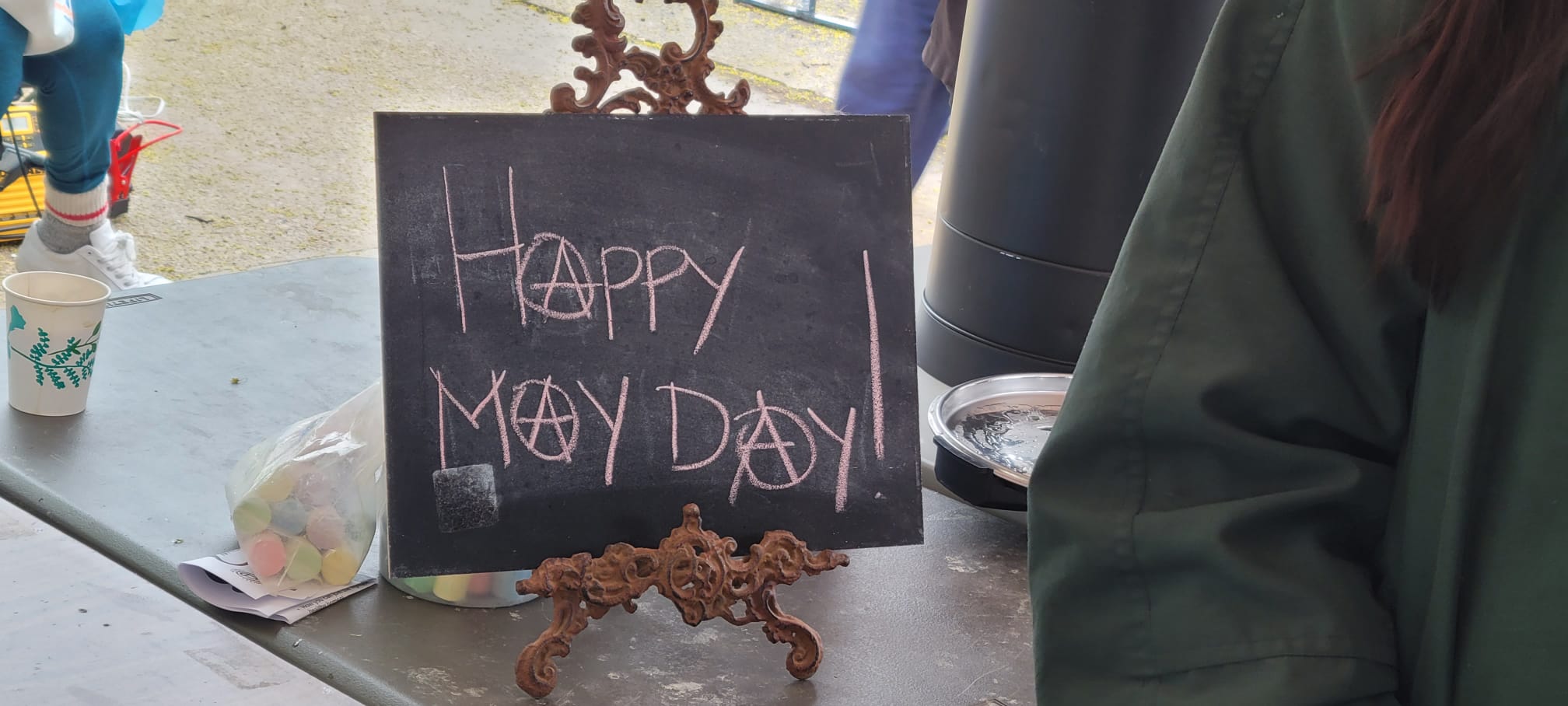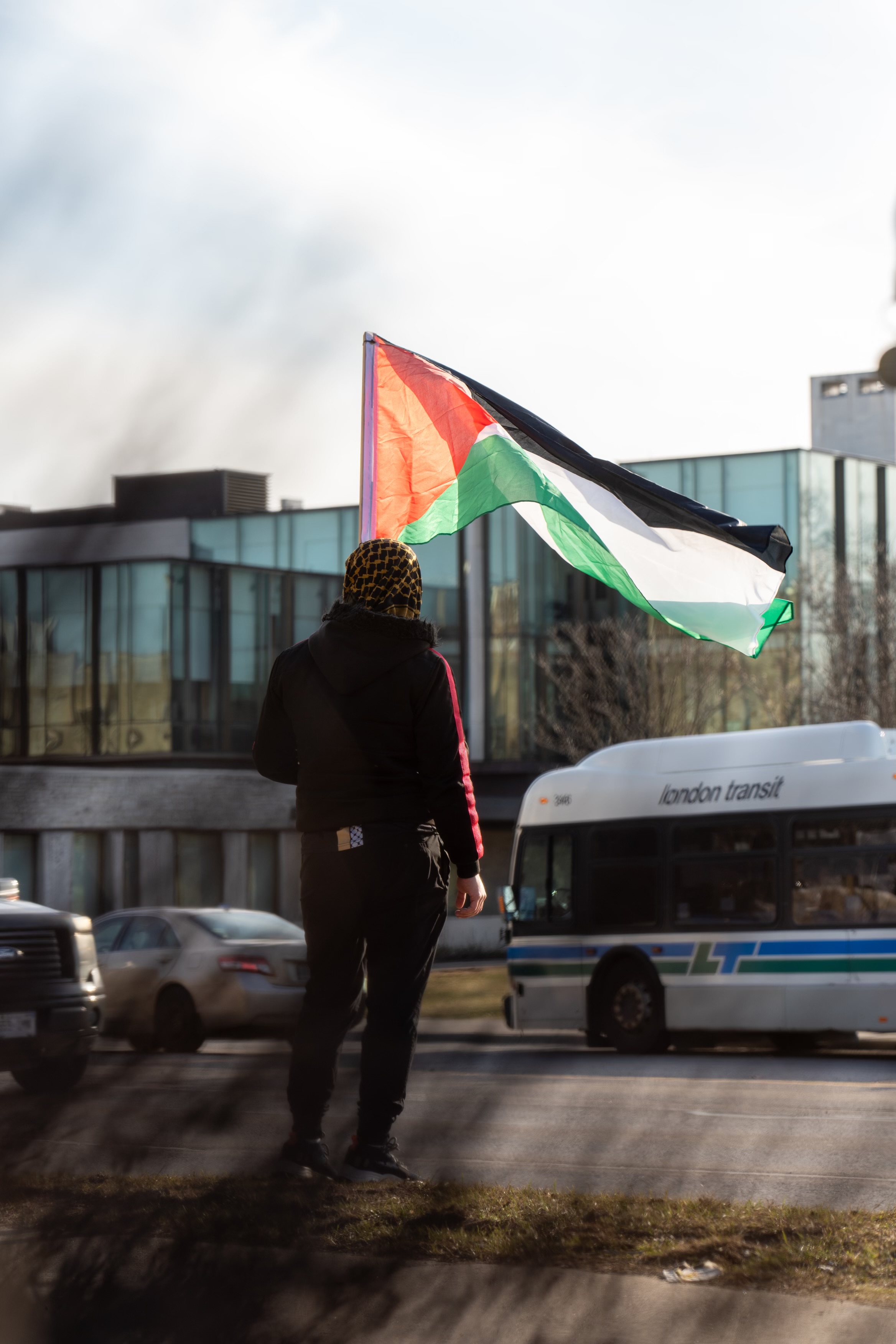‘If you do nothing, that amounts to supporting the status quo’: Activism for Palestine and how to sustain it
Incé Husain
Sat August 24, 2024

Originally published at NB Media Coop on December 27, 2023
Solidarity movements for Palestine flare worldwide at an unprecedented level. Over 80 countries have seen rallies rich with Palestinian flags, protests that fill the air with chants of ceasefire, and candlelit vigils that honour the martyred Palestinian people.
David Heap, a professor of linguistics and an advocate of universal human rights, offers his insights on effective activism and shares his experiences. He believes all forms of activism are important, that the risk lessens as more people advocate, and that sustaining activism relies on compassionate support networks.
He emphasizes that abstaining from activism does not equate to neutrality, but shows support for politics that maintains the status quo.
“All activism is impactful. The problem isn’t what you do, it’s that you do something. The one thing you’re sure of is that, if you do nothing, you will have no effect, and that amounts to supporting the status quo,” says Heap. “Folks who tell me ‘oh I’m not political’ – I always think “no, actually, you’re supporting the status quo. That’s actually a conservative position because you’re saying that you’re okay with the status quo enough that you’re not going to make an effort to change it.”
In November 2011, Heap joined a Canadian boat to Gaza, the Tahrir, with a group of activists and journalists. Before they reached the Gaza port, they were intercepted and illegally kidnapped by the Israeli navy in international waters, taken to Israel for interrogation, imprisoned, and then deported back to Canada six days later. The Canadian government had not immediately demanded their release, prompting criticism that it provided “political cover” for Israel.
“When you’re stopped at sea, they point guns at you. I was tasered, I sustained some bruises,” says Heap. “I wrote a will for the first time, and I wrote goodbye letters. There’s a real risk of not coming back. That’s not a joke because the Israeli state kills with impunity, and knowing that our government will not hold them to account. Also knowing that in any military unit, you’re at the mercy of the stupidest, most trigger-happy person.”
In 2012, Heap visited Gaza for a linguistics conference where he met Palestinian university students.
“My enduring memory was of the Palestinian university students,” says Heap. “First of all – amazing English. And their desire, just the thirst to know about the world. You’ve got this amazing population that’s crammed in this small area and can’t come out. We realize that they’ve got amazing stories to tell. I just found them very admirable, generally very admirable. And really tragic – some of them got scholarships and couldn’t get out, or they would be delayed for years before they could take up their studies.”
Heap says that the recent surge of Palestinian voices from Gaza in English language blogs, videos, and news marks a “change in the landscape” in activism for Palestine. They bring forth faces, names, lives, and memories that nurture bonds. Heap references “We are Not Numbers,” a youth-led Palestinian project in Gaza that shares the stories of Palestinian youth online. This directly challenges a “media blockade” that silences them, with mainstream media now seeking Palestinian voices for news reports.
The founder of We Are Not Numbers, Dr. Refaat Alareer, was killed earlier this month. On November 1st, he shared this poem:
If I must die,
you must live to tell my story
to sell my things
to buy a piece of cloth
and some strings,
(make it white with a long tail)
so that a child, somewhere in Gaza while looking heaven in the eye awaiting his dad who left in a blaze
— and bid no one farewell
not even to his flesh
not even to himself —
sees the kite, my kite you made, flying up above
and thinks for a moment an angel is there
bringing back love
If I must die
let it bring hope
let it be a tale.
“A lot of what (activism) is about is telling them that they’re not forgotten,” says Heap. “They’re forgotten by the states of the world. They’re not forgotten by the people of the world.”
Heap considers all forms of activism to be meaningful, from petitions to direct action.
He says that petitions can deliver powerful messages in parliament, and explains the historic petition for ceasefire addressed to NDP MP Alexandre Boulerice. With nearly 287,000 signatures, the e-petition has the most signatures ever sent to the Canadian Parliament.
In May 2023, Boulerice made a statement about The Nakba in the Canadian Parliament demanding that the Liberal government condemn the violence against Palestinians and enforce United Nations resolutions. Heap predicted that the Liberal party may follow in about 5 years. Instead, a Liberal began talking about it just the following week.
“It’s not because the politicians are better,” Heap says. “It’s because the grassroots are pushing it. It’s not political leaders who are leading it.”
Heap believes there is “a lot of room” for nonviolent direct action in Canada. During the Operation Cast Lead protests, he joined activists in occupying the office of a Conservative MP in London, Ontario.
“That made the community notice ‘hey, here’s some non-Arab, non-muslim, non-Palestinian people who are willing to put themselves on the line and risk arrest,’”says Heap. “There have to be people who are ready to risk arrest to challenge the occupation of Palestine, to challenge Canadian complicity with the occupation of Palestine, to challenge Canada arming Israeli apartheid. It’s going to require people willing to put themselves on the line.”
Heap discusses Boycott, Divestment, and Sanctions (BDS) as an “information education campaign.” Though BDS tends to start with people boycotting certain brands on their personal shopping lists, it will have little effect until merchants become aware of why it’s happening.
“You have to be explicit about what you’re doing, whether you are boycotting products, encouraging others to boycott products, encouraging businesses to stop shelving products, encouraging businesses to become apartheid free zones, encouraging institutions to divest. You have to be very explicit at every stage about the reason for it and educate,” says Heap. “Ultimately, it’s those conversations that will change people’s minds and give everyone a chance to get on the right side of history sooner rather than later.”
Less public forms of activism, like standing up to loved ones or having conversations with acquaintances, is something Heap considers vital. He says most conversations include quiet audiences who may be hearing about Palestine for the first time; reaching these people is more important than persuading those who harbour opposing stances.
“You don’t need to have the biggest fight. Talk to the people who aren’t convinced, who are genuinely open-minded. Most people are, frankly, ignorant,” says Heap. “We should think about who’s uninformed and who’s open to hearing about people like them: students in Palestine, teachers in Palestine, workers in Palestine, mothers and daughters in Palestine. What’s it like to raise your kids when you can’t get running water, or can’t turn on the lights. There are very human stories here that make the blockade and the occupation very real in another way.”
Heap says that advocating for Palestinian human rights yields unwavering pushback. A recent meeting Heap attended with the No IHRAcommittee of Independent Jewish Voices documented how many people have been doxxed, harmed, or lost employment because of their activism for Palestinian human rights.
The saddest case, in Heap’s view, happened at a Moxies restaurant in Toronto. Servers had merely stopped outside and applauded as a march for Palestine went by; someone took their photos, sent them to their boss, and they were fired.
“These are poor, minimum wage, low-age workers, women of colour, who are doxxed by some large Zionist organization and lose their jobs for applauding. This is the equivalent of liking something online. But people are losing their jobs for liking things online. This is literally the powerful going after the least powerful.”
Heap believes that his secure status in society obliges him to advocate for human rights in Palestine.
“I have a lot of privilege. I’m a white, male, cis, het settler tenured at an institution. So I can’t just sit quiet. People like me, I think, have a positive obligation to speak out because everybody else is more vulnerable. I have colleagues who are more vulnerable for a variety of reasons, we’ve got lots of other people in society who are vulnerable,” says Heap. “And on top of that, like most faculty in Canada, I’m unionized. So even if they don’t entirely agree with my position, the union is going to back my right to hold these positions.”
But Heap believes the Zionist agenda’s method of silencing activists indicates “massive desperation.” Aware that they cannot win arguments, they regress to threatening those who initiate them. Heap sees a “shift in the tide” where more people will gather to protect those targeted. He references the case of the law students at TMU who had penned an open letter supporting Palestinian resistance. Though they were denied placements at law firms for this activism, they were also met with lawyers who welcomed them into their firms.
“A huge number of lawyers wrote another letter and said ‘we welcome you as colleagues, we’ll be your mentors, we’ll employ you,’” says Heap. “Yes, people will get slapped down, but more people will give you a hand up. And that’s what you have to look for.”
The level of risk also plummets as more people become involved in activism. A small number of people may convincingly be called “terrorist supporters”, but thousands of people can’t.
“(With larger groups), more and more people will say they know those people and that they’re not like that,” says Heap. “The more we share the risks, the less potent the venom becomes.”
Heap says that everyone should gauge how much risk they want to take based on their status in society. Aside from life-threatening activism like the boat to Gaza campaigns, he says the risk he faces is “name-calling”.
“I’ve been called names my whole life for political reasons. If that’s going to stop me from doing something, maybe I shouldn’t think about taking a public political stance,” says Heap. “Other people will be called names and that’s going to stop them. And that’s not a criticism of them – being called a terrorist supporter has potentially very grave consequences depending on who you are, what your immigration status or employment status is. Everybody should think about (risk) and consider where they can get a little bit beyond, or somewhat beyond, or a lot beyond their comfort area.”
For Heap, the stamina for constant activism comes from having a group of people who nourish and heal one another so that no one is left to cope alone. Heap cooks, sings, and drums with others to sustain himself, and encourages everyone to find peace-giving rituals.
“Everybody needs to find a way to continue with their life,” Heap says. “It’s idealistic to think ‘oh, we’re going to liberate Palestine while I’m an undergraduate, while I’m in school.’ It’s a long struggle. It’s a marathon not a sprint, it’s probably several marathons. It’s important to find ways to sustain yourself and stay engaged.”
He emphasizes that activism must become a part of one’s life. This could include regularly donating to charities for Palestine, writing a letter to a government official once a week, educating people, or going to a book club for Palestine.
“Palestine needs us all the time,” says Heap. “Whatever you’re doing, make it part of your life. And make that balance such that you can sustain it.”For reliable information on Israel and Palestine, see the following Canadian independent news outlets recommended by David Heap: The Breach; Rabble; Ricochet; The Media Coop.
